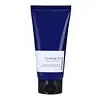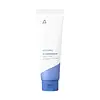What's inside
What's inside
 Key Ingredients
Key Ingredients

 Benefits
Benefits

 Concerns
Concerns

 Ingredients Side-by-side
Ingredients Side-by-side

Water
Skin ConditioningGlycerin
HumectantMethylpropanediol
SolventCaprylic/Capric Triglyceride
MaskingCetearyl Alcohol
EmollientMacadamia Ternifolia Seed Oil
EmollientHydrogenated Polydecene
EmollientButyrospermum Parkii Butter
Skin ConditioningGlyceryl Stearate
EmollientLonicera Japonica Flower Extract
Skin ConditioningArachidyl Alcohol
EmollientBehenyl Alcohol
EmollientArachidyl Glucoside
EmulsifyingPhenyl Trimethicone
Skin ConditioningCetearyl Glucoside
EmulsifyingBeeswax
Emulsion StabilisingSorbitan Stearate
EmulsifyingCellulose Gum
Emulsion StabilisingCeramide NP
Skin ConditioningYeast Beta-Glucan
Skin ConditioningCopper Tripeptide-1
Skin ConditioningButylene Glycol
HumectantHydrogenated Lecithin
EmulsifyingOctyldodecanol
EmollientCarbomer
Emulsion StabilisingHydroxyacetophenone
AntioxidantMyrtus Communis Extract
AstringentTropaeolum Majus Extract
AntimicrobialTromethamine
BufferingDisodium EDTA
Ethylhexylglycerin
Skin ConditioningWater, Glycerin, Methylpropanediol, Caprylic/Capric Triglyceride, Cetearyl Alcohol, Macadamia Ternifolia Seed Oil, Hydrogenated Polydecene, Butyrospermum Parkii Butter, Glyceryl Stearate, Lonicera Japonica Flower Extract, Arachidyl Alcohol, Behenyl Alcohol, Arachidyl Glucoside, Phenyl Trimethicone, Cetearyl Glucoside, Beeswax, Sorbitan Stearate, Cellulose Gum, Ceramide NP, Yeast Beta-Glucan, Copper Tripeptide-1, Butylene Glycol, Hydrogenated Lecithin, Octyldodecanol, Carbomer, Hydroxyacetophenone, Myrtus Communis Extract, Tropaeolum Majus Extract, Tromethamine, Disodium EDTA, Ethylhexylglycerin
Water
Skin ConditioningButylene Glycol
HumectantGlycerin
HumectantDiisostearyl Malate
EmollientDicaprylyl Ether
EmollientHydrogenated Poly(C6-14 Olefin)
EmollientBetaine
HumectantCetyl Ethylhexanoate
EmollientMethyl Trimethicone
Skin ConditioningC14-22 Alcohols
Emulsion StabilisingCetearyl Alcohol
EmollientGlyceryl Stearate Citrate
Emollient1,2-Hexanediol
Skin ConditioningStearic Acid
CleansingPolymethyl Methacrylate
Panthenol
Skin ConditioningHydroxyethyl Acrylate/Sodium Acryloyldimethyl Taurate Copolymer
Emulsion StabilisingAmmonium Acryloyldimethyltaurate/Vp Copolymer
Glyceryl Stearate
EmollientPalmitic Acid
EmollientArachidyl Alcohol
EmollientC12-20 Alkyl Glucoside
EmulsifyingAcetyl Glucosamine
Skin ConditioningBehenyl Alcohol
EmollientArachidyl Glucoside
EmulsifyingEthylhexylglycerin
Skin ConditioningCeramide NP
Skin ConditioningDisodium EDTA
Hydrogenated Lecithin
EmulsifyingSorbitan Isostearate
EmulsifyingDipropylene Glycol
HumectantThymol Trimethoxycinnamate
AntioxidantGluconolactone
Skin ConditioningGlucose
HumectantTocopherol
AntioxidantOenothera Biennis Oil
EmollientHydroxypropyl Bispalmitamide Mea
EmollientMannitol
HumectantCopernicia Cerifera Wax Extract
Acrylates/Ammonium Methacrylate Copolymer
Silica
AbrasiveArachidic Acid
CleansingCaesalpinia Sappan Stem Powder
ExfoliatingCholesterol
EmollientOleic Acid
EmollientWater, Butylene Glycol, Glycerin, Diisostearyl Malate, Dicaprylyl Ether, Hydrogenated Poly(C6-14 Olefin), Betaine, Cetyl Ethylhexanoate, Methyl Trimethicone, C14-22 Alcohols, Cetearyl Alcohol, Glyceryl Stearate Citrate, 1,2-Hexanediol, Stearic Acid, Polymethyl Methacrylate, Panthenol, Hydroxyethyl Acrylate/Sodium Acryloyldimethyl Taurate Copolymer, Ammonium Acryloyldimethyltaurate/Vp Copolymer, Glyceryl Stearate, Palmitic Acid, Arachidyl Alcohol, C12-20 Alkyl Glucoside, Acetyl Glucosamine, Behenyl Alcohol, Arachidyl Glucoside, Ethylhexylglycerin, Ceramide NP, Disodium EDTA, Hydrogenated Lecithin, Sorbitan Isostearate, Dipropylene Glycol, Thymol Trimethoxycinnamate, Gluconolactone, Glucose, Tocopherol, Oenothera Biennis Oil, Hydroxypropyl Bispalmitamide Mea, Mannitol, Copernicia Cerifera Wax Extract, Acrylates/Ammonium Methacrylate Copolymer, Silica, Arachidic Acid, Caesalpinia Sappan Stem Powder, Cholesterol, Oleic Acid
 Reviews
Reviews

Ingredients Explained
These ingredients are found in both products.
Ingredients higher up in an ingredient list are typically present in a larger amount.
Arachidyl Alcohol is a fatty alcohol made from peanut oil. It is an emollient, emulsifier, and thickener.
You'll most likely find this ingredient as an emulsifier in water-based cosmetics.
We don't have a description for Arachidyl Glucoside yet.
Behenyl Alcohol is a type of fatty alcohol (these are different from the drying, solvent alcohols).
Fatty Alcohols have hydrating properties and are most often used as an emollient or to thicken a product. They are usually derived from natural fats and oils; behenyl alcohol is derived from the fats of vegetable oils.
Emollients help keep your skin soft and hydrated by creating a film that traps moisture in.
In 2000, Behenyl Alcohol was approved by the US as medicine to reduce the duration of cold sores.
Learn more about Behenyl AlcoholButylene Glycol (or BG) is used within cosmetic products for a few different reasons:
Overall, Butylene Glycol is a safe and well-rounded ingredient that works well with other ingredients.
Though this ingredient works well with most skin types, some people with sensitive skin may experience a reaction such as allergic rashes, closed comedones, or itchiness.
Learn more about Butylene GlycolCeramide NP is a type of ceramide.
Ceramides are intercellular lipids naturally found in our skin that bonds dead skin cells together to create a barrier. They are known for their ability to hold water and thus are a great ingredient for dry skin.
Ceramides are an important building block for our skin barrier. A stronger barrier helps the skin look more firm and hydrated. By bolstering the skin ceramides act as a barrier against irritating ingredients. This can help with inflammation as well.
If you would like to eat ceramides, sweet potatoes contain a small amount.
Read more about other common types of ceramides here:
Ceramide AP
Ceramide EOP
Cetearyl alcohol is a mixture of two fatty alcohols: cetyl alcohol and stearyl alcohol. It is mainly used as an emulsifier. Emulsifiers help prevent the separation of oils and products. Due to its composition, it can also be used to thicken a product or help create foam.
Cetearyl alcohol is an emollient. Emollients help soothe and hydrate the skin by trapping moisture.
Studies show Cetearyl alcohol is non-toxic and non-irritating. The FDA allows products labeled "alcohol-free" to have fatty alcohols.
This ingredient is usually derived from plant oils such as palm, vegetable, or coconut oils. There is debate on whether this ingredient will cause acne.
Due to the fatty acid base, this ingredient may not be Malassezia folliculitis safe.
Learn more about Cetearyl AlcoholDisodium EDTA plays a role in making products more stable by aiding other preservatives.
It is a chelating agent, meaning it neutralizes metal ions that may be found in a product.
Disodium EDTA is a salt of edetic acid and is found to be safe in cosmetic ingredients.
Learn more about Disodium EDTAEthylhexylglycerin (we can't pronounce this either) is commonly used as a preservative and skin softener. It is derived from glyceryl.
You might see Ethylhexylglycerin often paired with other preservatives such as phenoxyethanol. Ethylhexylglycerin has been found to increase the effectiveness of these other preservatives.
Glycerin is already naturally found in your skin. It helps moisturize and protect your skin.
A study from 2016 found glycerin to be more effective as a humectant than AHAs and hyaluronic acid.
As a humectant, it helps the skin stay hydrated by pulling moisture to your skin. The low molecular weight of glycerin allows it to pull moisture into the deeper layers of your skin.
Hydrated skin improves your skin barrier; Your skin barrier helps protect against irritants and bacteria.
Glycerin has also been found to have antimicrobial and antiviral properties. Due to these properties, glycerin is often used in wound and burn treatments.
In cosmetics, glycerin is usually derived from plants such as soybean or palm. However, it can also be sourced from animals, such as tallow or animal fat.
This ingredient is organic, colorless, odorless, and non-toxic.
Glycerin is the name for this ingredient in American English. British English uses Glycerol/Glycerine.
Learn more about GlycerinGlyceryl Stearate is a mix of glycerin and stearic acid.
It is used to stabilize the mixing of water and oil ingredients. By preventing these ingredients from separating, it can help elongate shelf life. It can also help thicken the product's texture.
As an emollient, it helps soften skin and supports barrier-replenishing ingredients.
In cosmetics, Glyceryl Stearate is often made from vegetable oils or synthetically produced.
This ingredient may not be fungal-acne safe
Fun fact: The human body also creates Glyceryl Stearate naturally.
Learn more about Glyceryl StearateHydrogenated Lecithin is created from the hydrogenation of lecithin (a group of phospholipids). Hydrogenation is a chemical reaction between hydrogen and another element.
This ingredient is an emollient and emulsifier. As an emollient, it helps soften skin by trapping moisture within. As an emulsifier, it prevents oil and water ingredients from separating.
Water. It's the most common cosmetic ingredient of all. You'll usually see it at the top of ingredient lists, meaning that it makes up the largest part of the product.
So why is it so popular? Water most often acts as a solvent - this means that it helps dissolve other ingredients into the formulation.
You'll also recognize water as that liquid we all need to stay alive. If you see this, drink a glass of water. Stay hydrated!
Learn more about Water